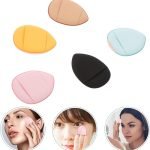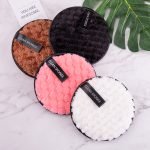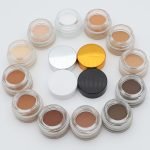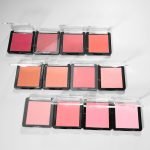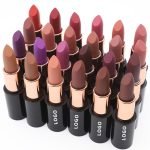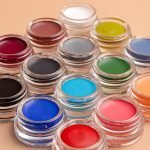- 1.Identify a profitable product
- 2.Research competitors
- 3.Choose a private labels cosmetics supplier
- 4.Request for samples and test the products
- 5.Choice a logo and branding
- 6.Decide where to sell your products
- 7.Market your products
- 8.Create a fulfillment strategy
- 9.Listen to feedback from customers to improve your products
- Conclusion
Private label cosmetics is one of the fastest growing industries, thanks to the popularity of beauty and skin care products. Private label cosmetics are beauty, makeup that are made by a company but sold under your brand name. This allows beauticians, estheticians, and even salon owners to create their own beauty label and sell to their clients without the hassle of investing in research, formulating beauty products, testing, or even production. However, selling private label cosmetics still has its challenges. The following steps can help you in the journey of creating your own brand and a profitable private labels cosmetics business:
1.Identify a profitable product
They key to being a successful entrepreneur is to find products for your customers, not customers for your products. A successful private label cosmetics business starts with identifying a product that your customers actually want. If you are already in the beauty or cosmetics industry, you may have an idea of what your clients are looking for. If you are new to the industry, you can identify profitable products by checking Google Trends, Movers and Shakers lists, and even Best Sellers Lists on e-commerce sites. The goal is to ensure there is a high demand for the products you wish to sell.
2.Research competitors
Research your competitors to determine who they are, what they offer, and what strategies they use. You can also figure out their sales tactics and how they market their products. Look at the price of goods at other people’s stores and the perks and discounts they offer. If you intend to sell the products online and to market through blogs and social media posts, you can use a keyword tool to determine the keywords your competitors are using. Look at how your competitors are serving their customers and how you can stand out from the crowd.
3.Choose a private labels cosmetics supplier
Private label cosmetics supplier will do most of the heavy lifting for you by researching and formulating the product and even testing it. . Research the various private label cosmetics suppliers and ensure you choose one that uses high quality ingredients and competitive price. Some suppliers can even create cosmetics using the ingredients you want. They may even have a research team that can help you bring your vision to life.
4.Request for samples and test the products
Before ordering your product line, ask the supplier for a few samples to ensure the cosmetics they manufacture meet your client’s needs. Some private label cosmetic suppliers accept sample order that allow you to sample some of their products before placing a full order.
5.Choice a logo and branding
Packaging, logo, and branding can help draw attention to your product and be out of the common your products,. Consider who your customer is when creating your packaging and logo. Do they look for luxury, or do they prefer something trendy? If there is anything unique about your products, such as the ingredients and where they come from, or your brand inspiration source,make it part of your brand’s story.
6.Decide where to sell your products
There are various platforms where you can sell your products and they each have their advantages and disadvantages. Some of the places you can sell your cosmetics include:
In stores, such as in fashion boutiques and salons
Online by creating your own website using e-commerce platforms such as Shopify
E-commerce sites and marketplaces such as Amazon
Social media, such as Facebook Marketplace and Instagram
7.Market your products
After choosing where to sell your products, create a marketing strategy. You can market your products through paid advertisements, social media marketing, search engine optimization, and influencer marketing. You can also create video content to show people how to use or apply the product to help drive sales.
8.Create a fulfillment strategy
A fulfillment strategy ensures your products get to your customers. If you are selling the products in brick-and-mortar stores, you don’t have to worry about a fulfillment strategy as the customers will buy the products at the physical store. However, if you are selling your cosmetics online, you have to create a strategy to ensure customers get the products on time. You can store your products in a warehouse and ship the cosmetics as soon as the customers place order.
9.Listen to feedback from customers to improve your products
Bill Gates once remarked that your most unhappy customers are your greatest source of learning. As with any business, keep track of both negative and positive reviews. Positive reviews help establish trust and can encourage new customers to try out your products. You can ask your clients to contact you first before leaving negative feedback to give you a chance to fix any issues. Always let your customers know that you appreciate them, and give loyal customers discounts and giveaways from time to time.
Conclusion
The private label cosmetics industry allows them pursue the high demand for cosmetics while to creat own brand for beauty . There are so many products and niches to choose from, from cosmetics and lashes to anti-aging products. Private label cosmetics manufacturers make it easy to get into the industry by formulating products on your behalf. Now that you know the steps to follow to sell you private label cosmetics, you can build your own cosmetics brand and scale your income.








